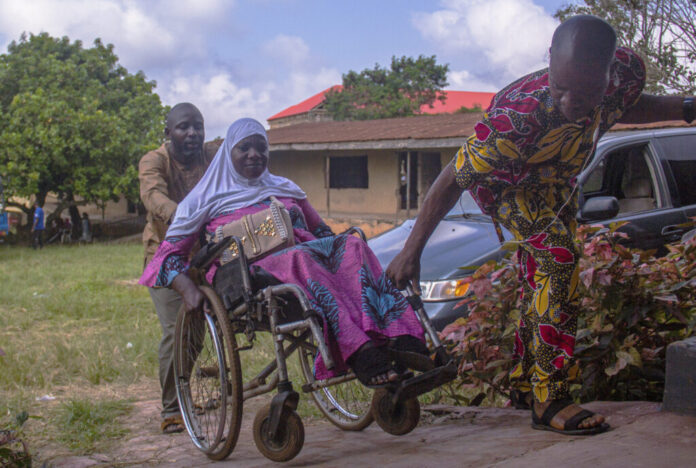by Femi Amogunla,
Seeing that getting access to COVID-19 vaccines was such a tall order, one polio survivor decided to do something about it.
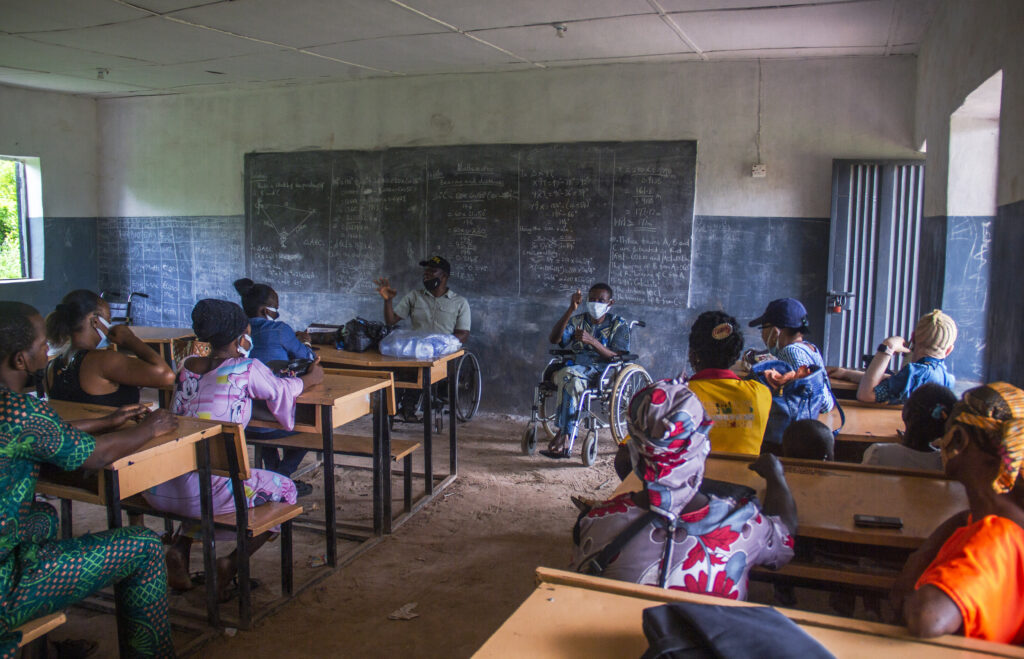
Sitting in his wheelchair, Raheem Olatunji Yusuf clenched his right hand and winced as the vaccinator injected his upper left arm with the Moderna vaccine. Finally, the polio survivor received his first dose of the Covid-19 vaccine.
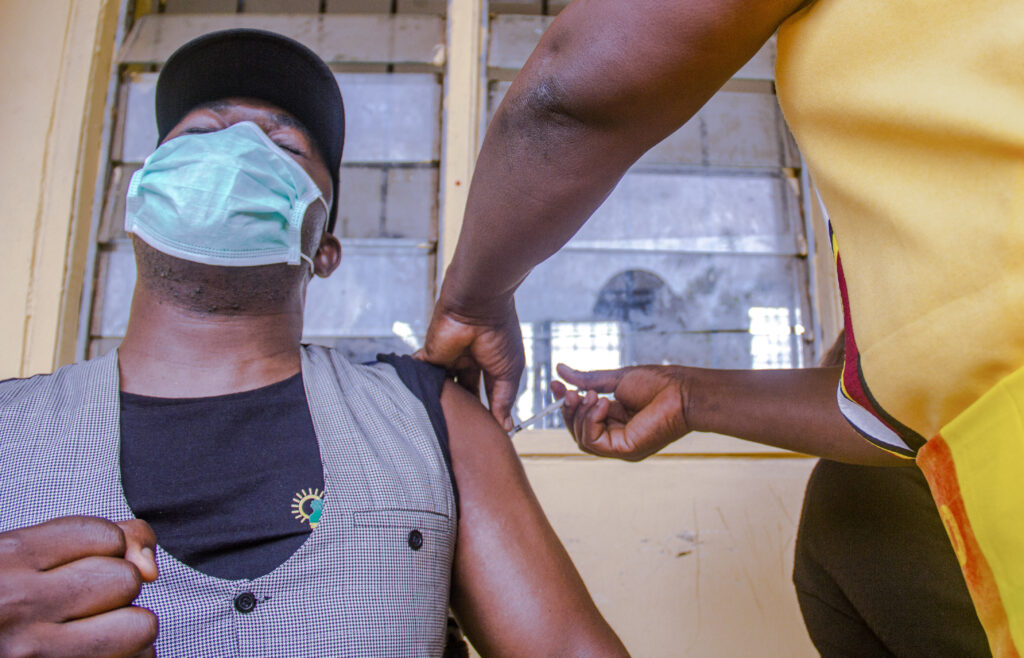
Weeks before, he had registered online and visited his selected centre, the University College Hospital in Ibadan, only to find it closed due to a national public holiday. When he visited again, there were no more first doses. He was told to check the centre at the Government Secretariat, the Oyo State Government’s seat of power. There, a long queue of people waited. Yusuf added his name to the waitlist; he was number 116.
As he wheeled himself out of the centre, Yusuf could not help but think about the challenges Persons with Disabilities (PwDs) like him have to overcome to get their jabs.
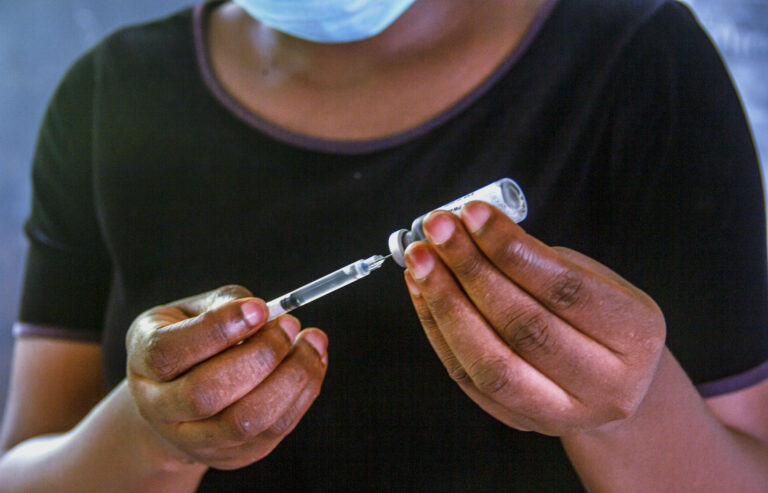
This starts with transportation: Yusuf ordered a car through Bolt, a ride-hailing app. Convenient but expensive. He was picked up from his home and dropped at his exact destination. Others need to rely on the city’s public transportation system which is filled with rickety buses and unreliable smaller taxis, popularly called Micra. Then there’s a fourth, riskier alternative: bikes.
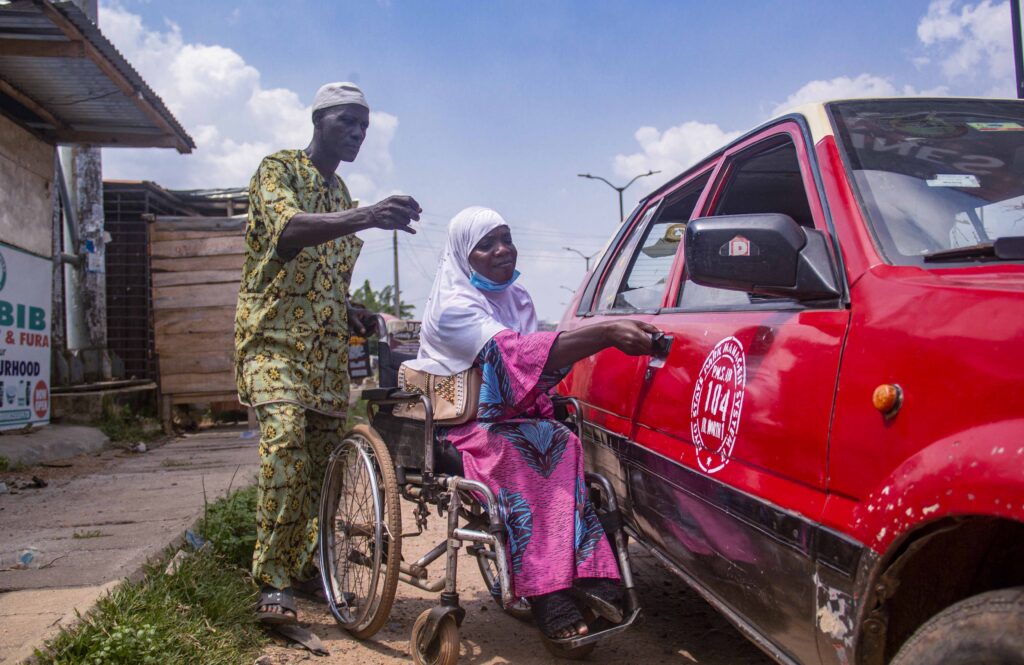
Isaac Odetayo, a visually impaired retired school principal, for example, took a bike from his house to the vaccination centre, yet he encountered some challenges.
“At the secretariat gate, I begged them to allow the bike man to take me inside.
”Odetayo was told that unregistered bikes like the one that carried him were not allowed in. However, after seeing his condition, they were granted access.
“It took us about thirty minutes…before we found the exact location,” said Odetayo, who lost his sight due to poorly managed glaucoma five years ago.
Arriving at the centre, cane in hand, assisted by the bike man, he waited his turn.
“After another thirty minutes, and no one was telling me anything, I was getting angry,” he said. When he inquired again, he was told that there were no more vaccination cards. The longer he waited, the higher his bike fare climbed. After a few more minutes, he was eventually vaccinated.
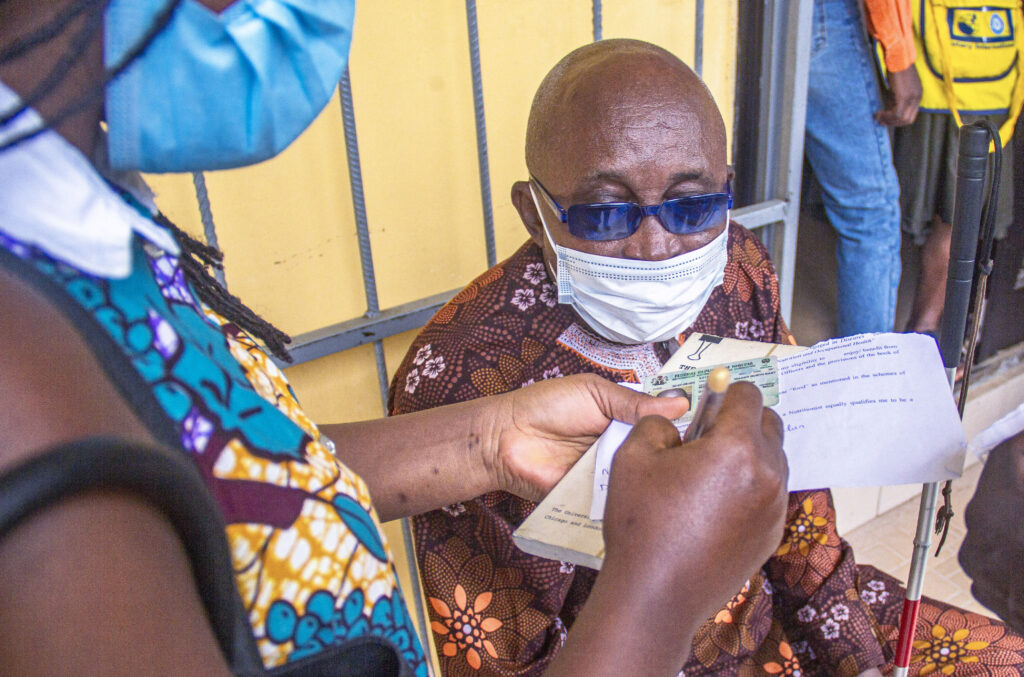
Nigeria’s federal government distributes the vaccine through the Federal Healthcare Board which then disseminates it to the state primary healthcare boards who further distribute it to local primary healthcare centres.
According to the Oyo State Primary Healthcare Board, the state board had administered the first dose of the vaccine to 922,300 people; the second dose to 455,410 and the booster shots to 15,442 people, as of February 2022.
However, the board does not have specific statistics on vaccinated persons with disabilities.
“Collecting such data may make the people in the community feel further segregated,” says the executive secretary of the Oyo State Primary Healthcare Board, Dr Muideen Babatunde Olatunji.
Consequently, the government’s vaccine distribution plan has no specific provisions for people with disabilities.
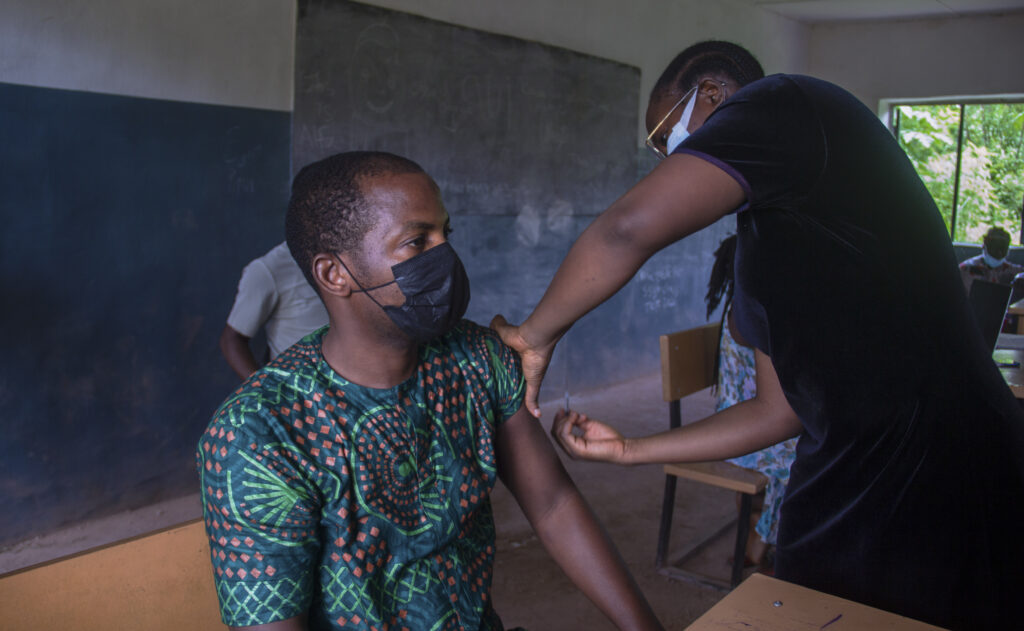
“The truth is there haven’t been any special provisions,” he says, suggesting health officials know they should attend to persons with disabilities. Olatunji adds that he once needed to address a “communication gap” when three hearing-challenged people came for vaccination at the centre.
“I had to announce openly if there was anybody who could do sign language. Luckily, somebody could. When one of the staff around wanted to give her the jab, I told her this was a special case. I collected it and did it myself.”
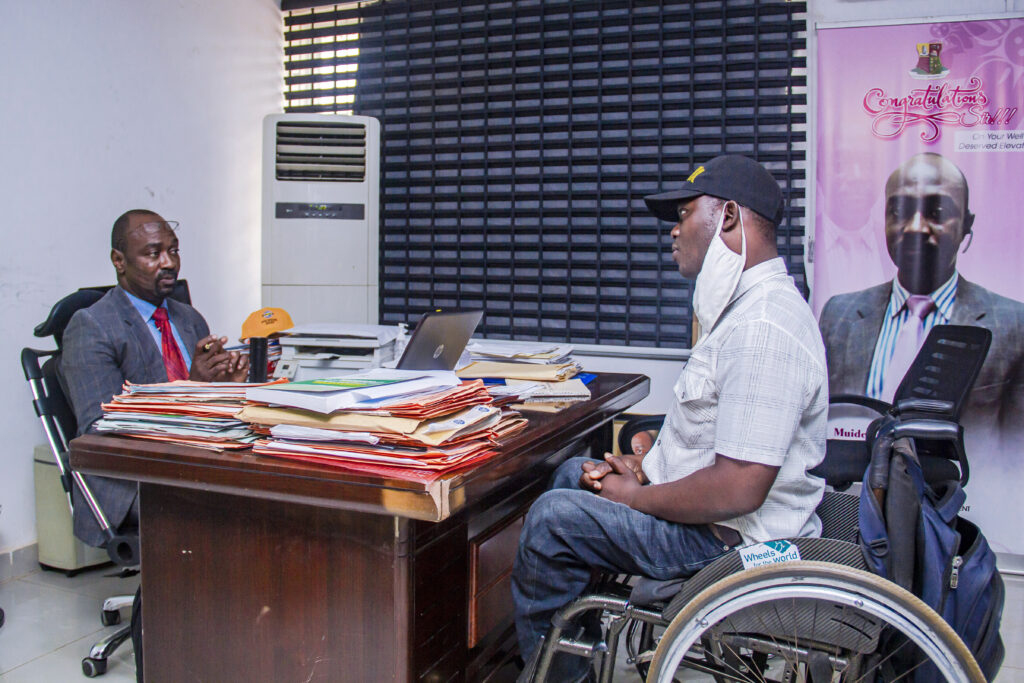
After his own challenging vaccination experience, Yusuf decided to help people facing similar difficulties around him. But first, he had to understand the issues. He set up an online survey.
He discovered that aside from the accessibility challenges, there was a lot of misinformation stemming from fear, fake news and ignorance of the vaccine.
Odetayo was one such person who came across these rumours. “Some people say once you take the vaccine, one will die,” he said. “As a Christian, because of this vaccine, I fasted and prayed that God should help me get it and come back alive.” He adds that his wife called him repeatedly before and after he got his vaccine to find out if he was okay. “I was fine. I did not experience any pain at all. So when she got back, she kept looking at my face, wanting to be sure I was okay.”
Yusuf decided it was important to counteract negative information with facts. He started working with vaccinated persons with disabilities to make an awareness video. After sharing it on social media, people within the community reached out to him for more information.
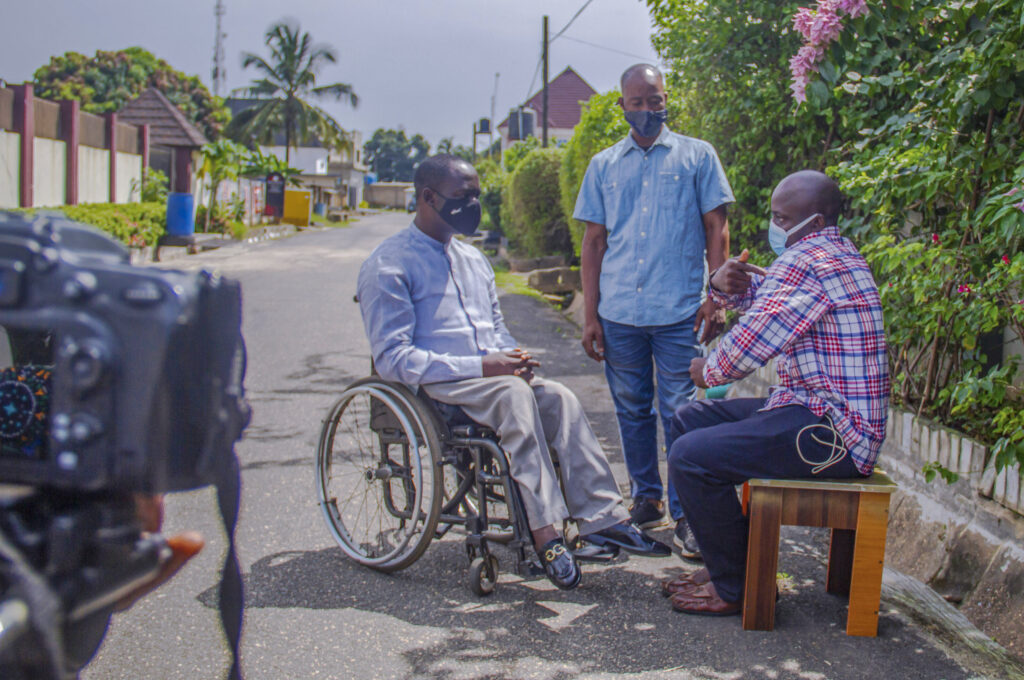
Next, he mobilised 18 people — polio survivors, the hearing impaired, and persons with albinism — to get their jabs. He paid their transportation fares, about N1000 ($2) from personal funds.
“At least they won’t be thinking of paying for transport and doing this gives my heart joy,” Yusuf said.
Initially, thirty people had shown interest in his campaign but some were unable to make it. Those present during the drive were registered online through the website of the agency responsible for primary health care in the country, the National Primary Health Care Development Agency (NPHCDA).
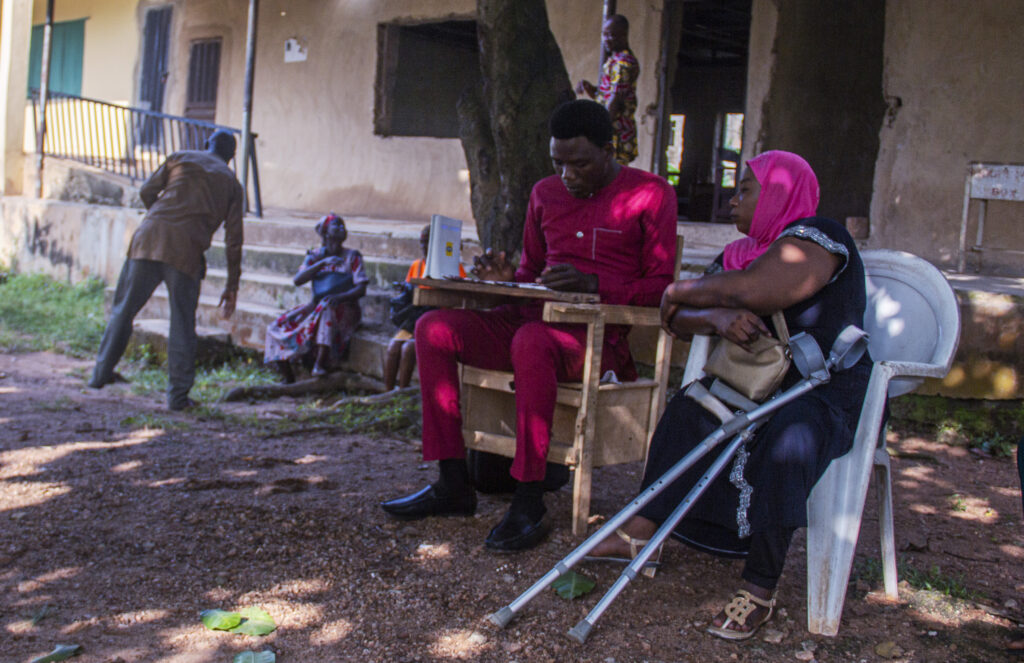
Once they arrived at the venue for the vaccination, the vaccinator explained the vaccine protocols as the interpreter signed the information to everyone present. The use of an interpreter was integral to communication. It also centred on the importance of including persons with disabilities on the vaccination agenda if the government is keen to reach more Nigerians.
Beyond the information gaps, there are other accessibility hurdles. Many healthcare centres lack ramps to ease access, for instance. Ige Abosede, one of those vaccinated, laments the challenge of vaccinating those who may not have access to the internet or even the kinds of networks for persons with disabilities through which Yusuf disseminated the vaccination drive.
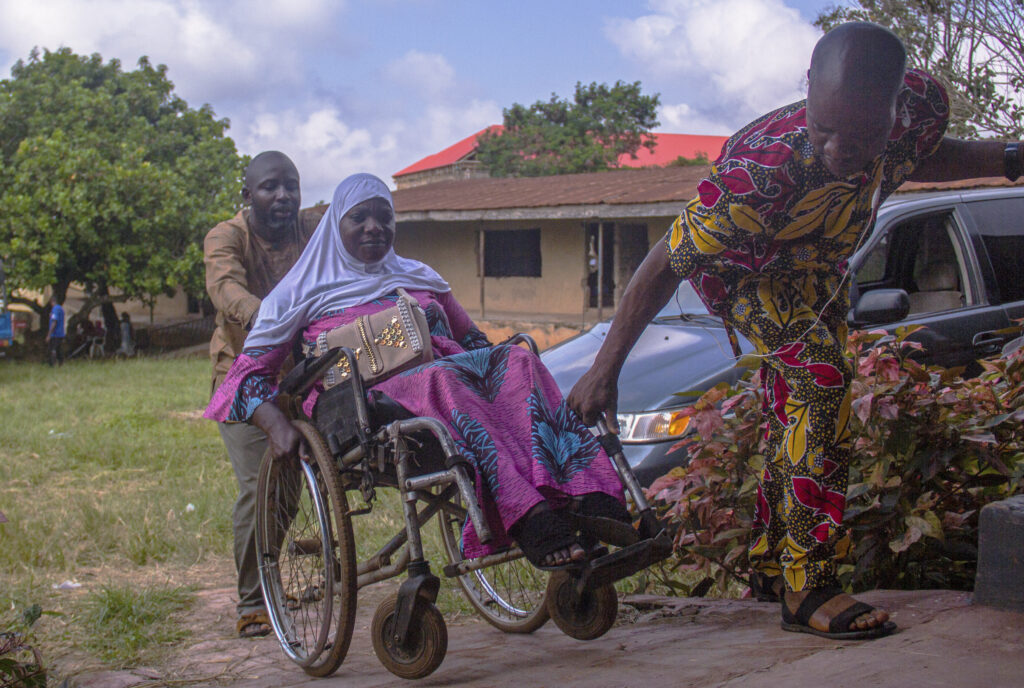
To reach these people, she thinks the government may need to go out to the cities and erect tents from which sensitisation and vaccinations can be done.
Yusuf dreams of a future where such “special initiatives” may not even be necessary.“
I hope that in the near future, our hospitals will be accessible to persons with disabilities. This is not just about building ramps to ease physical access. Hospitals need standby interpreters that can attend to the hearing impaired and medical staff who are educated on how to engage us,” he said.
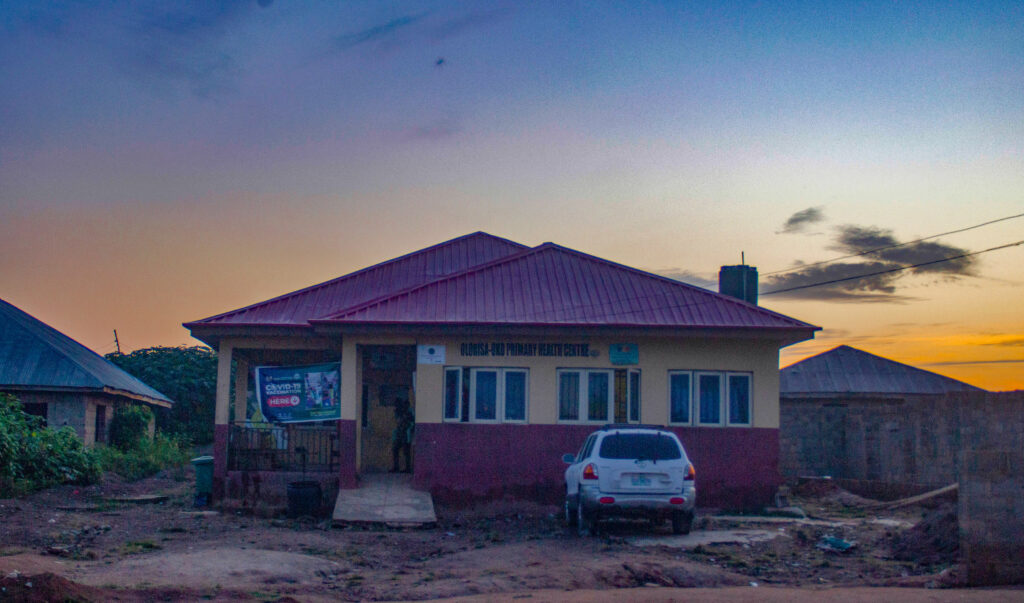
*All photos by Femi Amogunla. This project is part of the global initiative “Transparency and media freedom-Crisis resilience in the pandemic” by DW Akademie and the German Federal Ministry for Economic Cooperation and Development. (BMZ).*

